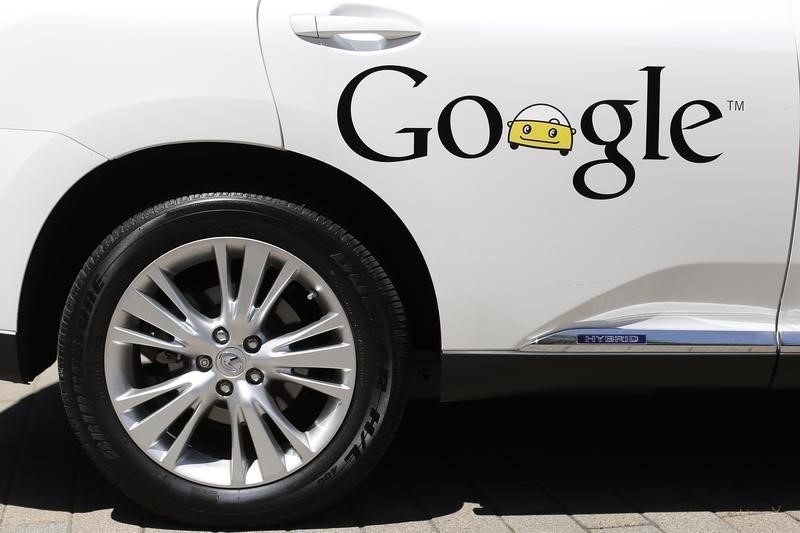By Alexei Oreskovic
SAN FRANCISCO (Reuters) - The Silicon Valley race to build a self-driving car may revolve around one simple question: to map or not to map.
The company at the forefront of the race, Google Inc (NASDAQ:GOOGL), is creating intricate maps that detail every tree and curb along the road - an expensive endeavor that other companies could find difficult to match.
Newer entrants such as ride-share service Uber and Apple Inc could take a shortcut and develop a car capable of piloting itself without such elaborate and expensive blueprints, industry experts say.
The dueling technological approaches represent more than a philosophical divide: they hint at how and when the companies, competing to expand into a significant new class of product, could put autonomous cars onto the road.
Raj Rajkumar, one of the leading experts on self-driving cars at Carnegie Mellon University, said the map-based approach makes sense for a company with Google's resources but is not required.
"Google is capable of collecting all this information. In our case, we don't have that capability, so we have to be creative. It turns out that's sufficient," said Rajkumar, who has developed a modified Cadillac that relies on radars, video cameras and six laser scanners and in 2013 drove 33 miles (53 km) to the local airport without human intervention or 3D maps.
Both approaches currently have limitations, and even the most optimistic acknowledge that a variety of technological, regulatory and legal issues mean it will be years, perhaps longer, before completely self-driving cars hit the road.
Apple is studying the potential for a self-driving car, a source familiar with the matter has told Reuters. Uber, which operates the popular ride-hailing service, announced a partnership with Carnegie Mellon University in January to focus on self-driving cars. Electric car maker Tesla Motors Inc is developing self-driving technology, and traditional automakers including General Motors Co and Nissan Motor Co Ltd are also adding automated features into their vehicles.
Companies such as Nokia's Here are also developing detailed 3D maps that potentially could be licensed by car companies.
Apple and Uber declined to discuss self-driving cars.
MAPS OF THE FUTURE
Mapping the entire United States to the level of detail used by Google's cars could easily cost hundreds of millions of dollars and take five to seven years, said Egil Juliussen, an analyst with research firm IHS Automotive.
All autonomous cars rely on basic electronic maps for navigation and lane centering. But Google's cars use far more detailed 3D maps, which the company creates by using laser scanners. Google analyzes the data, determining where traffic lights and stop signs are, for instance, so that the vehicle "knows" exactly where it is.
Google's pod-shaped prototype cars use on-board sensors, including the distinctive spinning laser on the car's roof, to detect anything not on the map, such as vehicles or baby carriages.
Google's existing mapping know-how and resources give it an extra advantage, said Boris Sofman, the co-founder and CEO of Anki, a robotics company that makes self-driving toy cars.
But the maps can quickly become stale, he said. Fresh snow could change the landscape.
"The map-based approach allows you to drive accurately in a controlled environment, where you know that things don't change much," said Dirk Langer, the chief technology officer of ASCar, which makes sensors for autonomous vehicles.
Google said its self-driving cars collect information about changing road conditions, which is used to regularly update the maps.
Gated retirement communities and college campuses would be ideal environments for cars that rely on 3D maps, said Langer, arguing that for broader uses sensors are more important than 3D maps. Cars might be able to pilot themselves without using 3D maps in specially designated lanes on streets and highways, said John Absmeier, the global business director of autonomous driving for auto supplier Delphi Automotive Plc.
But advances in sensor technology are also needed for cars to truly become autonomous. Carnegie Mellon's Cadillac required some sensors mounted on street lights to make its 2013 journey to the airport.
"We think we can handle 90 percent of road cases," said Carnegie Mellon's Rajkumar, "but getting to 100 percent will take longer."
